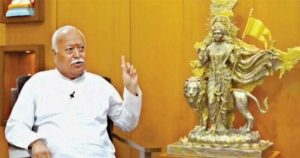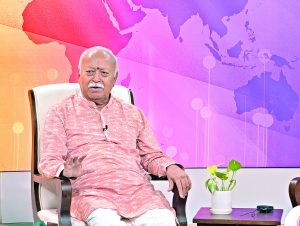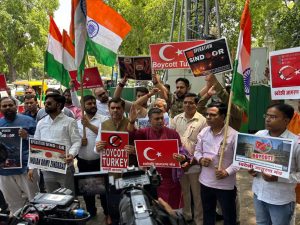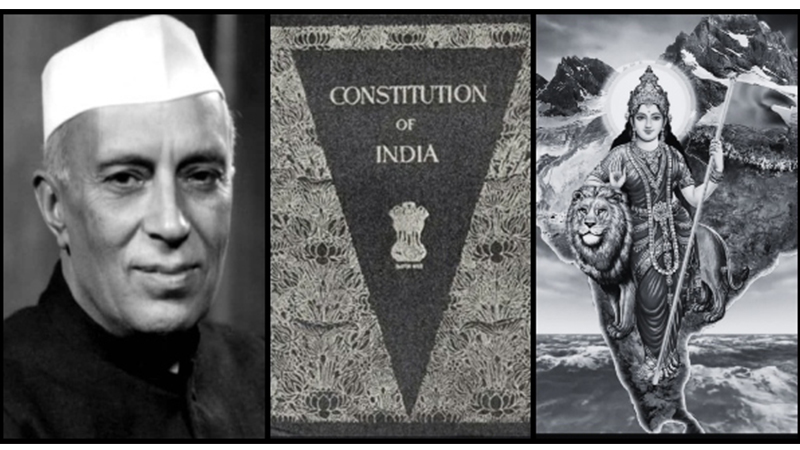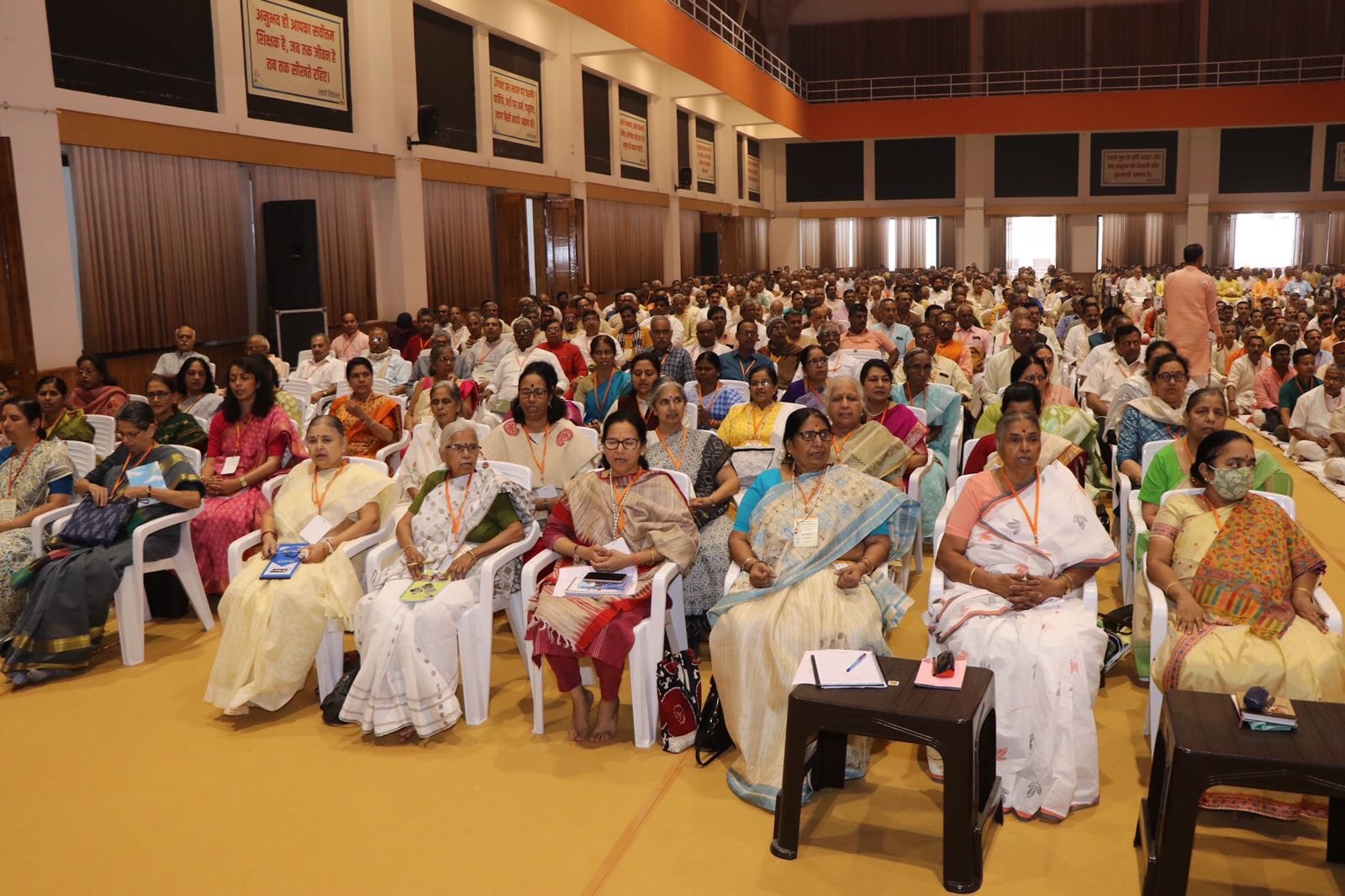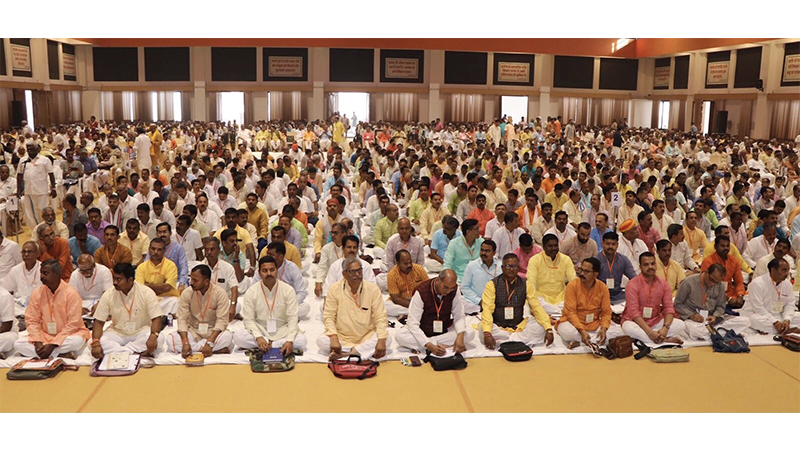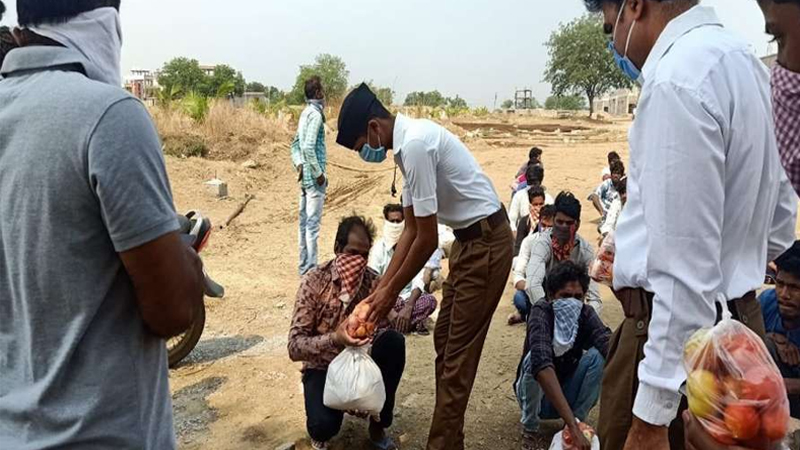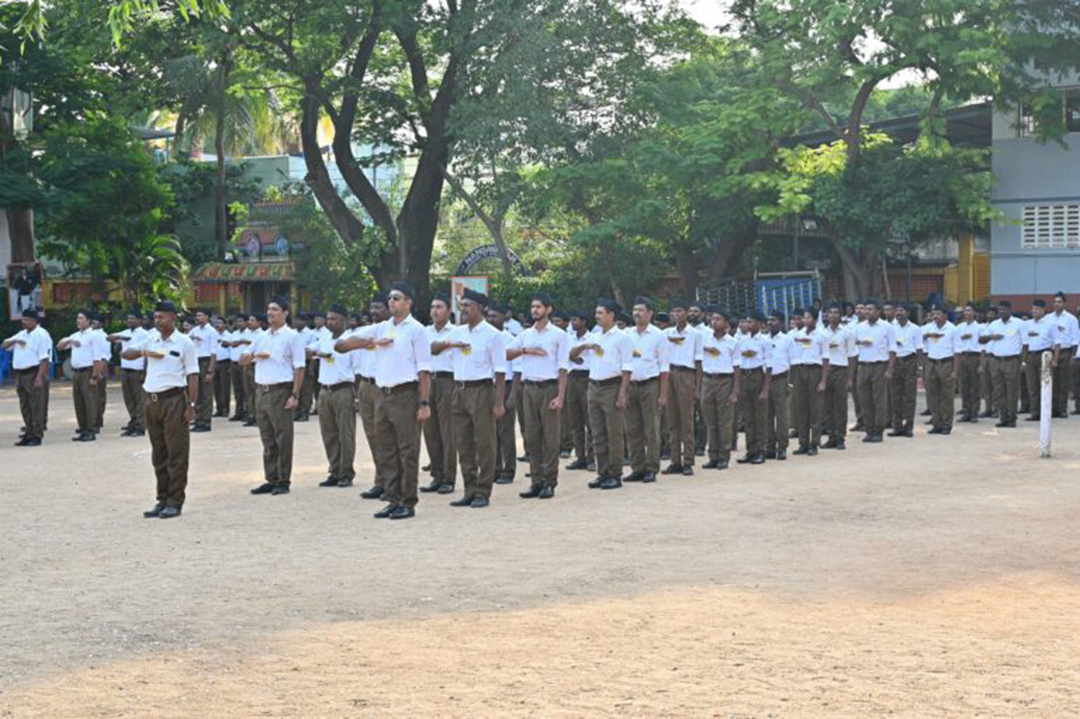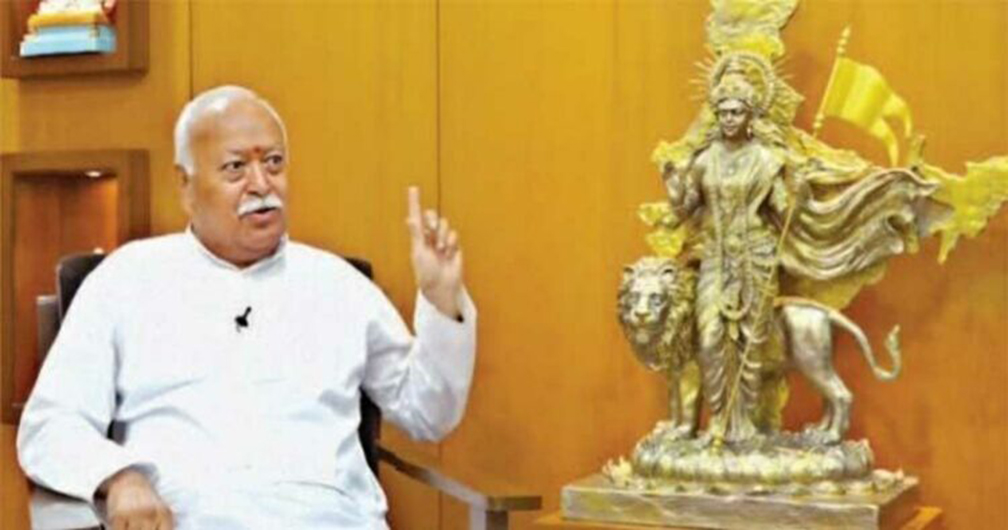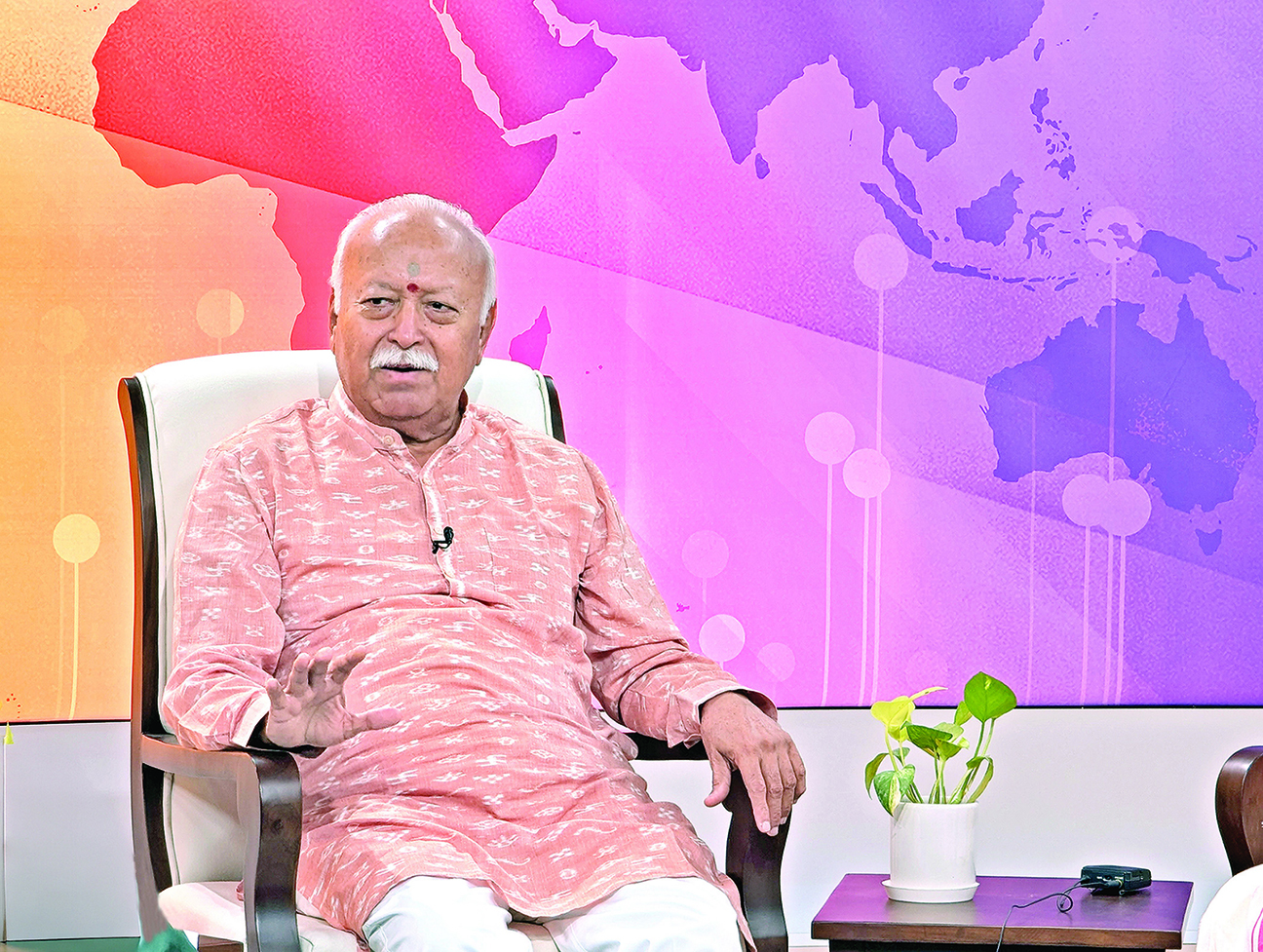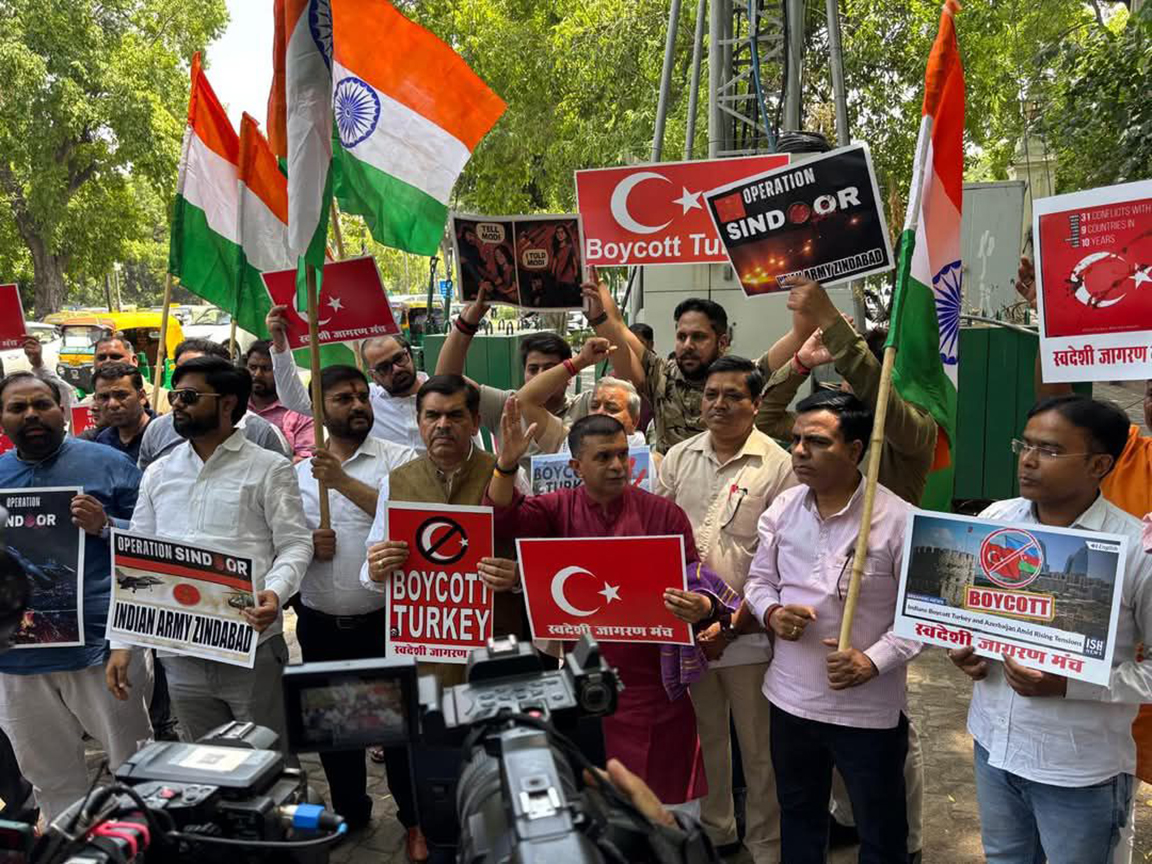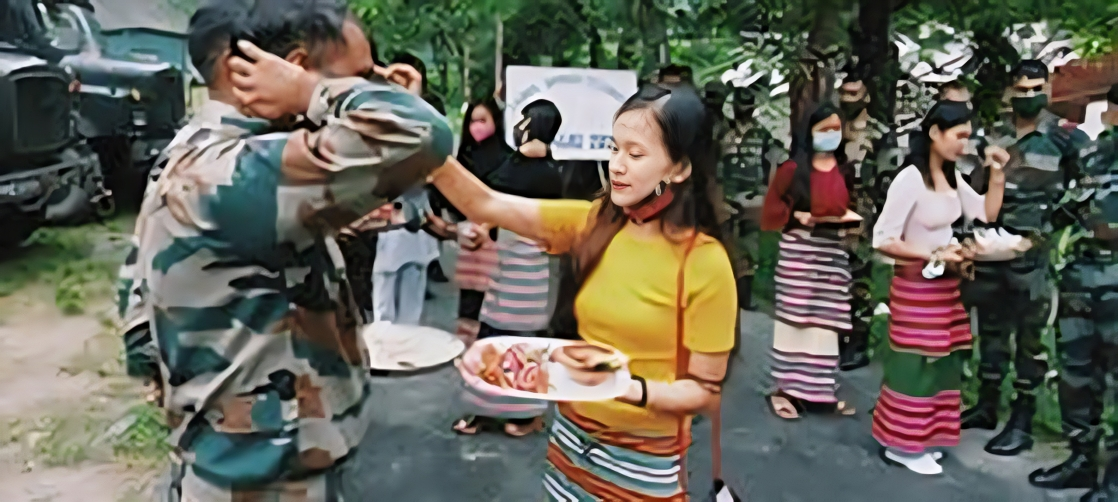Ekal Vidyalaya (Single Teacher School): A unique experiment educating millions of poor in India
Updated: July 22, 2023 4:26
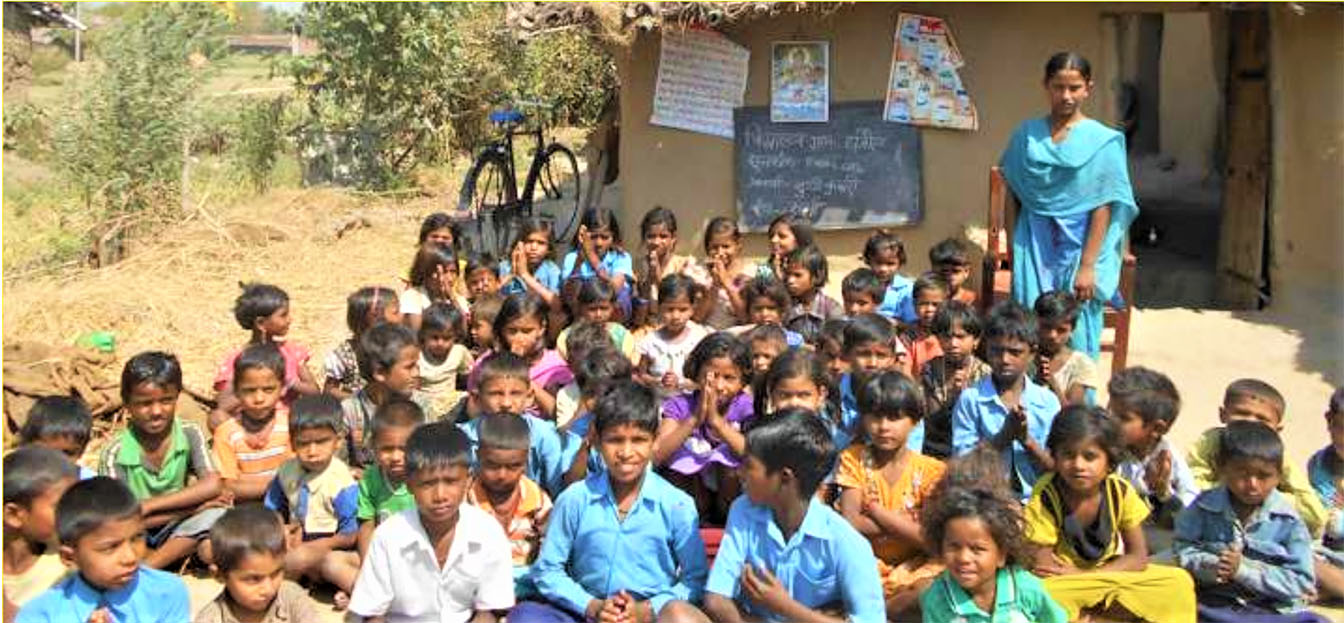
A large number of volunteers of Rashtriya Swayamsevak Sangh (RSS) work in the field of education and many of them have played an important role in carrying out a unique experiment of setting up single-teacher schools in far-flung areas where neither the government nor the private education facilities had been able to reach. These schools are known as Ekal Vidyalayas (Single Teacher Schools).
From 60 schools in 1988, Ekal Vidyalayas have grown into a network of over 78,000 one-teacher schools in India. Spread across the far-flung rural and tribal areas, the schools referred to as Ekal Vidyalaya currently provide primary education to over 2.1 million children. Ekal Vidyalaya- which means one and school respectively in Hindi- refers to one-teacher school.
Ekal Abhiyan project, the one-teacher school initiative, is run by Ekal Vidyalaya Foundation (EVF), a non-profit organisation. It has more than 78,000 volunteer teachers to impart basic education to the children in the age group of 4-10 years in the remote tribal villages of the country.
According to the ‘2025 vision’ spelled out in the annual report (Financial Year 2022) of Ekal Abhiyan, all Ekal Vidyalayas will have activities incorporated in their curriculums around its five-fold education model by 2025. The use of technological devices, mainly tablets in teaching, will be stepped up. Ekal Abhiyan’s five-pronged approach is focused on primary education, healthcare education, rural development education, ethics and value education, and empowerment education.
To fill up gaps in reporting requirements, Acharya App, Karyakarta App and Pragat Sanch App are being developed to get real-time data regarding students, teachers and community at large. The aim is to cross the milestone of running 100,000 Ekal schools, once again, as per the vision document. About 20,000 schools had to be discontinued to maintain quality during 2021-22, bringing downtime number of schools from over 100,000 to around 78,000.
An ambitious target has been set to enhance the funding of Ekal schools by local communities to cover 10,000 schools. Currently, 1,468 villages are funding Ekal schools in their areas. During 2021-22, Ekal Abhiyan received contributions to the tune of Rs 1.5 billion from within the country and around Rs 440 million from abroad. A sum of Rs 1.3 billion was incurred on Ekal Abhiyan during this period.
As per the annual report (2021-22) of Ekal Abhiyan, around 2.1 million students are currently enrolled in 77,983 Ekal Vidyalayas. Of them, 50 per cent are girls. So far, 7.5 million rural children have passed out of these schools which are spread across 26 states covering 344 districts.
Bhau Rao Devras, a renowned social activist and younger brother of the third Sarsanghchalak of Rashtriya Swayamsevak Sangh (RSS) Madhukar Dattatray Devras, first outlined the concept of one-teacher schools at a seminar organised in Gumla, Jharkhand in June 1986 to find a solution to the problem of illiteracy in tribal villages.
At first 60 Ekal Vidyalayas started in Dhanbad in Jharkhand. The initiative of Ekal Vidyalayas got wings when another social activist and senior RSS functionary Shyam Gupta with his tremendous organisational skills transformed this informal model of education into a movement which is now known as Ekal Abhiyan. To bridge the gap between urban and rural India, he motivated some affluent families from Kolkata and other cities to visit tribal areas and understand the problems of the people living there. In the course of time some industrialists and business houses got associated with the programme. The list of donors and partners includes ONGC, ESSEL, IFFCO-TOKIO, RITES, IRCON, SMC Group, Sharp Business Pvt Limited, Century Ply, Rupa, Lux, NIC, PC Jewellers, Emami, IRCTC, Canara Bank, Star Cements, Surya Roshni, Union Bank, Petrofac, Mankind Pharma, Action Shoe, Sun City Projects, Crompton Greaves and Haldiram, as per Ekal’s website. Currently, there are 8,783 donors.
Ekal Vidyalayas impart three years of free, informal education to the children aged 4-10 years. Earlier, the school catered to the age group of 6-14 years. Each Ekal school has around 25-30 students from the same village. Ekal model postulates teaching with an emphasis on the students’ cultural background. The medium of instruction is the local dialect. Apart from basic skills of reading, writing and arithmetic, the curriculum covers general knowledge, basic science, health and hygiene awareness, moral education, local sports, yoga, crafts, culture and functional digital knowledge.
The idea is not only to make children literate but also impart basic education. Physical activities such as yoga and play are integral part of the Ekal model. The schools are also working to incorporate technology-based education.
Non-formal method of teaching is adopted to make learning interesting and fun. Children are taught with the help of craft, games, storytelling, songs and dance. Experiential learning helps create curiosity and interest among children. After completing three years at Ekal, children mostly attend formal school. In case formal school is not an option, they are encouraged to join vocational training courses. Local skills are also promoted for self-reliance.
Annual exams are conducted and children are graded on the basis of their performance. The students are given admission irrespective of religion, caste or creed.
The classes are mostly held in open spaces-under a tree, in temple, community courtyard or at teacher’s home in the village- six days in a week for 2-2.5 hours daily. The school timings are flexible and are decided by the village. The students are divided into three groups based on their capability after an assessment.
Different grades are taught at different timings during of the school for a smooth functioning. Older students assist younger students in the class which is divided into groups. While the teacher teaches one group, the rest of the children work on homework assigned to them.
In the villages where students attend formal schools, Ekal provides support education to those enrolled in the regular schools. The teacher is a local youth, preferably female, with minimum 12th grade education. The teachers undergo training to start with, followed by refresher courses at regular intervals. They are also evaluated on a monthly basis.
Ekal Abhiyan, which is the national-level body of the project, designs the month-wise syllabus for the year. To synchronise between different cultures and languages, each state has a curriculum leader who is tasked with translating content to the local language and choosing appropriate play and stories based on the traditions of the place. The school curriculum follows a three-year syllabus. Multi-grade teaching is adopted to teach simultaneously to multiple grades through group learning.
Ekal Abhiyan is an organisation mostly driven by volunteers with a passion to serve tribal and rural communities. The teachers are from the same village. The workforce, which comprises mostly of volunteers, helps keep the administrative costs low. The teacher known as Acharya is motivated to do something for the village accepts a very low honorarium. There is no expenditure on infrastructure development. Outreach is either through word of mouth or by campaigns run by volunteers.
To make it a viable model, a well-defined system is in place to monitor and run the Ekal Vidyalaya operations. Local village community is also involved in overseeing and monitoring of the schools. Each village has an Ekal Vidyalaya Teachers’ and Gram Samiti which acts as the first-level supervisory body. It is formed in consultation with Ekal’s nearby office and gram panchayat of the area. There is a Sanch Office on every 30 Ekal Vidyalayas. A supervisor supported by a two-wheeler, visits, and supervises the school operations. The reports of Vidyalayas are sent to the supervisory offices at different levels, right up to the head office.
The full-time volunteers placed at various levels are the strength and the backbone of the Ekal movement. The day-to-day affairs are being looked after by the workers who are placed at various levels for the purpose. Their feedback is the key to proper planning, implementation, monitoring, and evaluation of the Ekal Vidyalaya project.
Ekal model is not to replace the formal education system but to complement the same by inculcating interest for learning among the children. Although Sarva Shiksha Abhiyan and Right to Education Act have increased the number of schools and enrolment of children, there is a continued need for Ekal schools as indicated in several reports of Education Ministry pointing towards poor learning outcome among rural and tribal children. There are remote areas, particularly in hilly region and forests, still not having easy access to formal schools. In some areas where formal schools exist, they are non-functional due to either poor attendance or non-availability of teachers. Ekal Vidyalayas are meant to fill the gap in education in such rural and tribal areas.
EVF operates under the umbrella organisation of Ekal Abhiyan Trust and has a number of organisations associated with it. These are -Friends of Tribals Society (FTS), Shree Hari Satsang Samiti (SHSS), Arogya Foundation of India (AFI), Ekal Gramothan Foundation (EGF) and Ekal Sansthan (ES).
Ekal Vidyalaya Foundation of India (EVFI) raises resources from abroad and operates Ekal schools in some parts of Northern India. The schools in many other parts of the region are run by FTS and Ekal Bharat Lok Shiksha Parishad (EBLSP).
Shri Hari Satsang Samiti raises resources and imparts value and moral education. Similarly, Arogya Foundation of India runs rural health services in rural areas. EGF runs skill development centres, organic farming and empowerment activities.
Ekal Sansthan (ES) is the research and development wing of the project.
Ekal Global Foundation (EGL) has been set up to strengthen Ekal chapters globally and links Indian diaspora to their homeland.
The foundation is active in several countries, particularly the United States of America, United Kingdom, Canada and Australia. The local chapters of the foundation in most of these countries have been active in fundraising by organising events such as music programmes. With the help of sponsors and fundraiser events, the Indian community abroad has been supporting a large number of the schools back home. Ekal Foundation raised over $ 4 million in a star-studded event ‘Future of India’ held in the USA in November, 2022.

